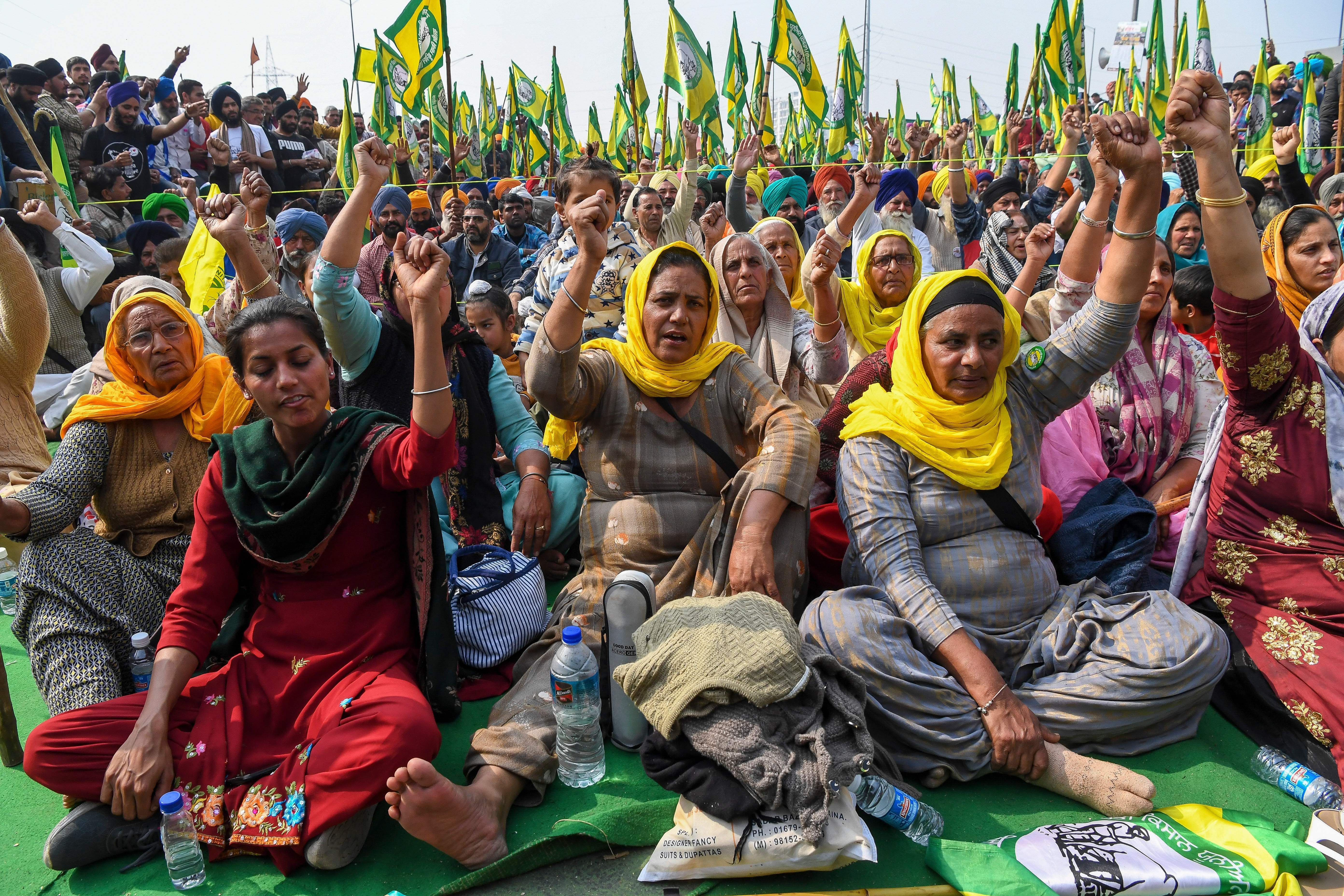Anupam NathSo why are Indian farmers angry. Farmers try to break police barricade during a protest as police stop them from entering Delhi to protest against new farm laws at Delhi-Uttar Pradesh border India Dec.
 The Indian Farmers Protest Explained
The Indian Farmers Protest Explained
Agriculture is the primary source of livelihood for about 58 of Indias 13 billion residents and farmers are the biggest voter bloc in the country making farming a central political issue.

Why farmers are protesting in india. The Coconut Board a government outfit offered Rs 10 per coconut. Farmers have been protesting against three farm laws published by the government under Prime Minister Narendra Modi. Why Are Farmers Protests in India Triggering Historical Traumas.
In September three farm bills were passed by both Lok Sabha and Rajya Sabha. In states where there are no large-scale MSP operations private market prices tend to be lower. CNBC reports that farmers have dealt with low crop prices rising costs demonetization and widespread droughts all of which may have contributed to a rise in farmer suicides.
Many are Sikhs as the religious minority in India makes up a majority in Punjab. Unfortunately according to the farmers United Front of Samyukt Kisan Morcha 248 farmers died over just 87 days during the protests. The farmers protesting outside New Delhi are among the wealthier farmers in the country a group that benefits from disproportionate government buying at the MSP.
In 2019 nearly 10300 farmers killed themselves. According to Samyukta Kisan Morcha the umbrella body representing protesting farmers at least 147 farmers have died during the protests due to causes including suicide road accidents and. Why are there protests in India.
The farmers waved flags and taunted officers. Why are Farmers protesting in India. Initially the protests were peaceful until on Indias Republic Day they had a violent turn during a parade.
A friends uncle was ecstatic when the Modi govt abolished the coconut board akin to the APMC. So what are the farmers protesting against. Large roadblocks placed by the police and protected with barbed wire stand a few hundred meters from the camps preventing the farmers from invading the center of Delhi.
The farmers claim the violence was stoked by the government and outside elements in an effort to derail their months of peaceful protest. Agriculture supports almost half the population of IndiaAP. The new laws come at a very very bad time since Indian farmers have already been struggling for years.
After abolition of the Coconut Board price offered by private traders was Rs 40 per coconut. For those who wonder why farmers are protesting - heres a live example from Kerala. Why Indian farmers are protesting against new farm bills Government move to reform agricultural marketing has sparked protests with critics calling the move pro-corporate.
The protests are still continuing and tens of thousands of farmers have been living in tents at makeshift camps pitched on highways outside Indias capital New Delhi. The government argues that the laws are a necessary step towards the modernisation of agriculture allowing farmers to sell crops to private firms. The Union government says the ordinances are pro-farmer and will provide barrier-free trade for farmers produce outside notified grain markets and empower farmers to enter into farming agreements with private players prior to production for sale of agri-produce.
Why farmers are protesting. They want the laws scrapped. For decades now the Indian government has been offering farmers a guaranteed price they earn for the crops they sell giving them a sense of security and allowing them to prepare for further investments.
The turmoil around the protests are tapping into historical traumasa result of colonization oppression and religious divisionswithin the South Asian diaspora and Indias rural communities in the Punjab. Simply put farmers believe that the reforms will leave them at the mercy of big business. According to the government these bills will accelerate growth in the farming sector by removing middleman between farmer and buyer and attracting private investors towards agriculture through a Nation-wide legal framework.









